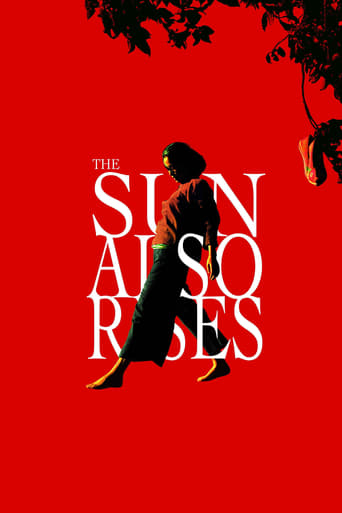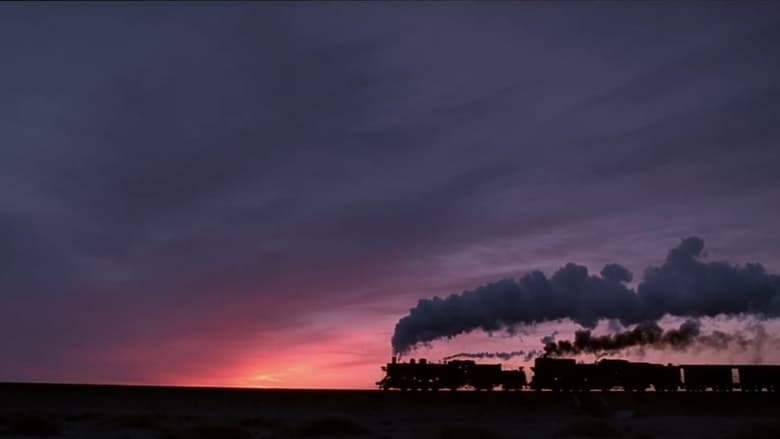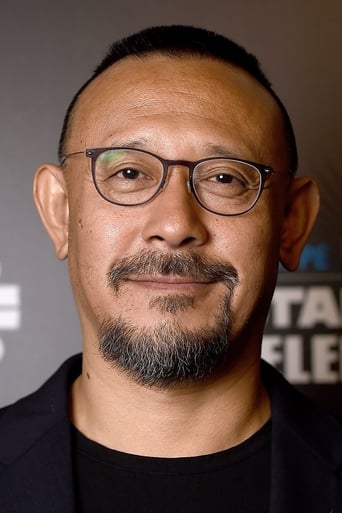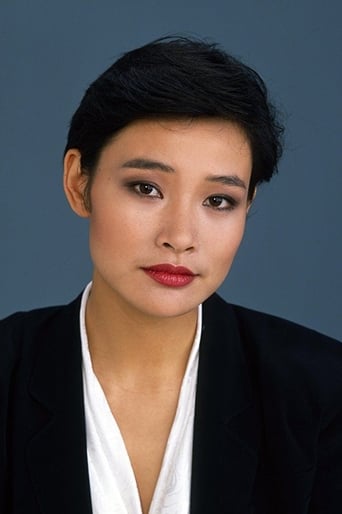

The Sun Also Rises (2007)
A polyptych of interconnected stories in different time-zones, shifting between a Yunnan village, a campus, and the Gobi Desert.
Watch Trailer
Cast


Reviews
best movie i've ever seen.
Admirable film.
There are better movies of two hours length. I loved the actress'performance.
While it is a pity that the story wasn't told with more visual finesse, this is trivial compared to our real-world problems. It takes a good movie to put that into perspective.
I won't pretend to understand everything or even half of what went on in this film. I gave up pretty quickly into the film, however, I wanted to keep on watching and the film kept me enticed mainly for that reason. Sometimes it feels good not to understand? Just to watch for the beauty? The Magic? The craziness? The unknowingness of it all. I really found this film like I was wandering through a modern art gallery but so much better. It was painted beautifully, the setting and the colours; my mouth watered and i felt like i was eating a six course meal.The words also seemed to be quite poetically abstract to fit in with it all. A dream like film.
The film is more a self-actualization of Director Jiang himself on his aspirations and far-sightedness than a readily decipherable reading for the audience. Alongside the 4 episodes respectively under the narrative motifs of insanity, love, gunman and dream, the quadruple-segmented parody in a non-chronological structure embeds in its inner core, quite implicitly, a philosophy of karma, cycling, reborn, rejuvenation and blessings. Structurally, events in the last episode (dream) precede those in the first episode (insanity) in temporal dimension but is narrated in a flashback. The interrelatedness between the first episode (insanity)and the third (gunman) as well as the sequential arrangement of the second episode (love) and the third (gunman) provides a bridge that completes the causality in both temporal and spatial dimensions of the story. The last episode (dream), a flashback, closes most gaps, bestowing on the audience a residual brain working activity on leaving the cinema.The wide spectrum of the director's meditation of the story does not call for a preferred reading on the part of the audience. Instead, it leaves ample rooms for decoding and boundless interpretation. Insanity rides through the entire story in various degrees and in variant forms: insanity reigns in the insanity episode; it then tunes down itself as an over-reaction in the love episode; it transforms itself into an extreme sentiment and lust in the gunman episode; it becomes a possible nirvana (expressed in an aberrant gesture of the character), under a rising sun, on the next generation in the dream episode.Jiang establishes love as another common narrative theme and the act of running as visual motif in the four episodes. Love sways between parental care and lovers' romance in the sequences. The wide geographical coverage in the story and the western-styled gunman perhaps are projections of the grandiose and ostensible aspirations of the director.Under fast pacing, fast cutting, elliptical narrative, a deluge of film language and cinematographic techniques, fluidity in temporal and spatial orientations and with abrupt slapsticks in loud volume (ambient sounds), the film presents with comic effects and titillating musical acoustics a contrivance from an essentially intrinsic perspective that swings between perceptibility and imperceptibility to practical decoders.
these 4 parts story-telling is popular lately, but Jiangwen's "sun also rise" is the most magic one. compare to the "still thing"by Jiazhangke, Jiangwen use a more passion color and rhythm to make a movie, based on the Chinese life style. maybe you will say there is none connection with these two.but let us focus on the "looking for husband" part in "still thing", is it familiar to the frantic mum story in "the sun also rise". i totally believe the theme is the same. maybe these whole stories are out of the country ,the race, the age or period, it is supposed to happen whenever and wherever, woman is crazy for the man , man is crazy for different women,but life still on.can live in the love ,can death for the love. even can't tell ,the fate was made by a glance or an occasional meeting long time before. which like the wife of the director, also the actress as the frantic mum, said:" when i was very little,the first movie i've seen in cinema,is Jiangwen's "the days under sunshine", i never can expect one day i'm his wife." but for Jiangwen, this is not his first woman. but we can find ,how the new love encourage him and change the way he express himself.in the movie, when the young guy finally say his own opinion about the woman belong to him, Jiangwen, also a character in that movie, put on his gun, and give a shot.He is mad on he is not young.
Seen in the Toronto International Film Festival First thing, the English translation of the title is inaccurate. The Chinese title says "The sun rises as usual". I don't know if the mistranslation is due to oversight, incompetence or, this is a long shot, a sneaky ploy to draw attention to the film by subliminally invoking a connection with Hemingway's novel of the same name.Top Chinese actor JIANG Wen's third try at the director's chair seems to have been inspired by works like "Amores Perros" (2000), "21 grams" (2003) and Babel (2006). Should that really be the case, what has been achieved is only form, not substance. Under the superficial structure of interlinked stories and non-linear time frames, the complexity of the plot is nowhere near that of the three mentioned. While there are red herrings abound, there is really no ingenuous cause-and-effect links as in these others.The individual stories are however worth watching. While there are three, plus an epilogue that purportedly links everything together (which it kind of does, but in a rather haphazard way), I'll only mention the middle one. At 46, Joan Chen can still do neurotic-erotic like nobody else can. Anthony Wong, strumming a few acoustic chords and crooning a popular Indonesian folk ballad, is irresistible, to young girls and middle-age women alike:Bengawan Solo River of love we know Where my heart was set aglow When we loved not long ago(he sang in Chinese) Overall, the movie is well shot, with all the once avant-garde elements of camera deployment, montages, mise-en-scene, extensive voice over, visual and audio motifs, occasional wandering into the surreal, you name it. The effort is commendable and the result is watchable. Add a pinch of ingenuity in the next one and director Jiang will certainly be heading in the right direction.




